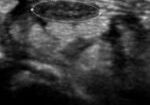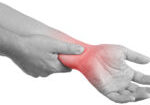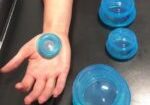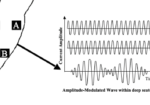New Distal Bicep Tendinopathy Provocative Test for Hand Therapist
Filed under Evaluation
Caekebeke, P., Schenkels, E., Bell, S. N., & van Riet, R. (2021). Distal biceps provocation test. The Journal of Hand Surgery.
The Skinny:
These surgeons were looking for a provocative test for distal bicep tendinopathy (distal biceps tendonitis test), specifically partial tears, that was more sensitive and specific. Complete tears are more easily tested in the clinic, but more precise tests are needed for partial tears before MRI use is warranted. This study investigated the merits of the Bicep Provocative Test (BPT).
In The Weeds:
The BPT is conducted with the patient’s arm flexed at 70 degrees. Step one is isometric flexion against resistance in supination. Step 2 (BPTp) is the same stimulus with the forearm in pronation. The pronated position is postulated to create more pain response with this test, given that the distal bicep tendon’s attachment to the radial tuberosity results in different mechanics in supination versus pronation.
“The distal biceps tendon wraps around the radial tuberosity when the arm is pronated, and the tendon is stretched and compressed when the biceps is activated”
The BPT was conducted on 60 individuals in a double-blind manner. Thirty individuals had suspected distal bicep pathology and 30 patients with other pathology of the elbow. Results of the provocative test were confirmed with MRI or from surgical findings.
Taking it Home:
The BPT produced a sensitivity and specificity of 100% each. The pronation position produced increased pain versus the supinated position by 5-6 points on the visual analog scale (0-10). This suggests that the pronated position might be more sensitive on a larger sample size. This provides therapists with a clinic-based provocative test to direct care or outside referral for partial distal bicep tendon pathology.
Rating: 4/5
The sample size for this study was relatively small at 60 participants, and the sensitivity and specificity would almost certainly be less than 100% with more participants. Overall, however, this is a well-written article that introduces a new provocative test that clarifies the identification of an otherwise difficult to diagnose pathology.
3 Comments
Leave a Comment
More To Read
THE SENSITIVITY AND SPECIFICITY OF ULTRASOUND FOR THE DIAGNOSIS OF CARPAL TUNNEL SYNDROME: A META-ANALYSIS
Fowler, J. R., Gaughan J. P., & Ilyas, A.M. (2011). The sensitivity and specificity of ultrasound for the diagnosis of carpal tunnel syndrome: A meta-analysis. Clinical Orthopedics and Related Research, 469(4), 1089-1094. The Skinny –The authors sought out to determine the sensitivity and specificity of ultrasound therapy for the diagnosis of carpal tunnel syndrome using…
Management of a TFCC Injury in Hand Therapy
By: Taylor Volentine The wrist is composed of very complex joints that assists with movement in individuals of all ages and abilities. For instance, an active individual who participates in sports such as tennis, football, or gymnastics may increase the probability for wrist complications and injury (Morrison, 2019). Individuals with repetitive trauma from work or…
The effects of cupping therapy as a new approach in the physiotherapeutic management of carpal tunnel syndrome
Article Review By: Rachel Reed Mohammadi, S., Roostayi, M. M., Naimi, S. S., & Baghban, A. A. (2019). The effects of cupping therapy as a new approach in the physiotherapeutic management of carpal tunnel syndrome. Physiotherapy research international : the journal for researchers and clinicians in physical therapy, 24(3), e1770. https://doi.org/10.1002/pri.1770 The Skinny: The purpose of this…
IFC vs TENS: Electrical Stimulation for Pain and Swelling
In this article we’re looking at the difference between Inferential Current versus Transcutaneous Electric Nerve Stimulation (IFC vs TENS). Transcutaneous Electric Nerve Stimulation (TENS) TENS variations are often described by their technical characteristics: high frequency, low intensity (conventional TENS) or low frequency, high intensity (acupuncture-like TENS, AL-TENS) (Walsh et al., 2009). How TENS Addresses Pain:…
Sign-up to Get Updates Straight to Your Inbox!
Sign up with us and we will send you regular blog posts on everything hand therapy, notices every time we upload new videos and tutorials, along with handout, protocols, and other useful information.







Thank you for this concise review! You and Josh are great and appreciated!
Thank you, Cece! So great to hear from you.
What are your recommendations for treatment of partial distal bicep tendon tears? Thank you very much.